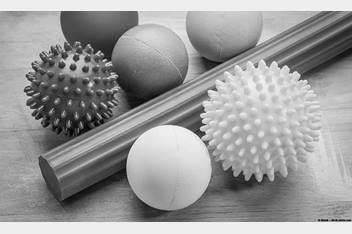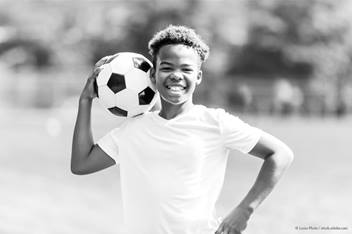What is Sleep Hygiene?
We all know how important it is to wash our hands, clean our bodies and brush our teeth to maintain good hygiene. But did you know we need to make sure our sleep habits are ‘clean’, too?
Increased use of electronics, busy schedules, stress and lack of physical activity have begun to ‘dirty’ up the sleep habits of our children.
Thankfully, there are many things that can be done to improve sleep quality and have us functioning at our best every day.
Here are some reasons why sleep is so important and tips for improving our sleep habits.
How Much Sleep Does My Child Need?
Children require different amounts of sleep based on their age.
- Preschoolers (3- to 5-year olds) need between 10 and 13 hours of sleep.
- School-aged children (6- to 13-year olds) should get between 9 and 11 hours per night for optimal growth and development.
- Teenagers need between 8 and 10 hours of sleep.
Why Is Sleep Important For My Young Athlete?
Sleep is crucial for retaining new learned information, which explains why younger children, who are constantly learning foundational life skills, require so much sleep. It also explains why poor sleep may correlate with poor grades in school-aged children and teens.
Sleep is also very important to recovery from training and injury in athletes of all ages. During sleep, important hormones are released to assist in muscle growth and repair, fat burning, as well as bone building.
If an athlete continues to exercise without proper sleep recovery, they may experience changes in mood, decline in performance, and increased stress hormone levels. They may even experience a decline in immune function, leading to greater risk for illness.
How Do Electronic Devices Impact Sleep?
If your child is struggling with sleep, take a look at how much time they are spending on their electronics.
According to the National Sleep Foundation, increased time spent on electronics has been linked to insomnia as well as signs of depression in adolescents. This screen time included time spent on electronics for school or educational purposes.
Electronics emit blue light that can suppress hormones in our bodies such as melatonin, which help to regulate our sleep cycle. More time in front of a screen leads to delayed release of melatonin and thus, more problems falling asleep and staying asleep.
How Do We Improve Our Sleep Hygiene?
Try these small changes to achieve more restful, meaningful sleep.
- Shut down electronics one hour before bed.
- Make sure the room temperature is appropriate for your child’s age (60 to 67 degrees for children and adults, 65 to 70 degrees for babies and toddlers).
- Use the bed only for sleep - no hanging out in bed.
- Create and stick to a sleep schedule, even on weekends.
- Don’t drink caffeinated beverages after noon.
- Get daily exercise - preferably in the morning or in the afternoon, not evening.
- If exercise in the evening cannot be avoided (ex. sports practice) and your child is having a hard time winding down to get to sleep, consider trying relaxation techniques such as deep breathing, meditation or visual imagery.
The Sports and Orthopedic Physical Therapy team at Nationwide Children’s Hospital offers services at several locations throughout the Columbus area. Call (614) 722-2200 to schedule an evaluation or request an appointment online.



